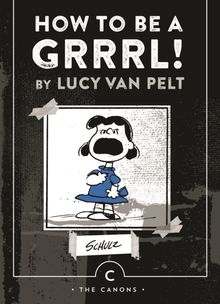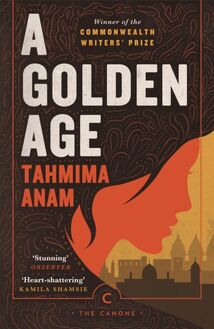Pimp: The Story Of My Life , livre ebook
131
pages
English
Ebooks
2009
Vous pourrez modifier la taille du texte de cet ouvrage
Obtenez un accès à la bibliothèque pour le consulter en ligne En savoir plus
Découvre YouScribe en t'inscrivant gratuitement
Découvre YouScribe en t'inscrivant gratuitement
131
pages
English
Ebooks
2009
Vous pourrez modifier la taille du texte de cet ouvrage
Obtenez un accès à la bibliothèque pour le consulter en ligne En savoir plus
Publié par
Date de parution
05 février 2009
Nombre de lectures
0
EAN13
9781847674753
Langue
English
Poids de l'ouvrage
1 Mo
Publié par
Date de parution
05 février 2009
Nombre de lectures
0
EAN13
9781847674753
Langue
English
Poids de l'ouvrage
1 Mo
Robert Beck , who used the moniker Iceberg Slim , was a major-league pimp during the '40s and '50s. He decided to leave the pimping game having served his third and final stretch in jail. He moved to Los Angeles where he straightened out and began a career as a writer. Pimp was originally published in 1967.
Also by Iceberg Slim Fiction Trick Baby Mama Black Widow Death Wish Long White Con Airtight Willie & Me Shetani’s Sister Non-fiction The Naked Soul of Iceberg Slim
Canons edition published in Great Britain in 2019 by Canongate Books
First published in Great Britain in 1996 by Payback Press, an imprint of Canongate Books Ltd, 14 High Street, Edinburgh, EH1 1TE
First published in the United States in 1967 by Holloway House Publishing Co.
Digital edition first published in 2009 by Canongate Books Ltd
canongate.co.uk
Copyright © Iceberg Slim, 1967, 1987 Introduction copyright © Irvine Welsh, 2009
The right of Iceberg Slim to be identified as the author of this work has been asserted by him in accordance with the Copyright, Designs and Patent Act 1988
British Library Cataloguing- in-Publication Data A catalogue record for this book is available on request from the British Library
ISBN 978 1 78689 612 4 eISBN 978 1 84767 475 3
Contents
Introduction Foreword Preface Chapter One: Torn From The Nest Chapter Two: First Steps Into The Jungle Chapter Three: Salty Trip With Pepper Chapter Four: A Degree In Pimping Chapter Five: The Jungle Fauna Chapter Six: Drilling For Oil Chapter Seven: Melody Off Key Chapter Eight: Grinning Slim Chapter Nine: The Butterfly Chapter Ten: The Unwritten Book Chapter Eleven: To Lose A Whore Chapter Twelve: To Gain A Stable Chapter Thirteen: The Iceberg Chapter Fourteen: The Mistake Chapter Fifteen: In A Sewer Chapter Sixteen: Away From The Track Chapter Seventeen: Trying A New Ame Chapter Eighteen: Jailbreak Chapter Nineteen: The Ice Pick Chapter Twenty: Stable Moves Chapter Twenty One: The Steel Casket Chapter Twenty Two: Dawn Epilog Glossary
Introduction
I was driving through some black neighbourhoods on Chicago’s South Side this spring with American writer Don De Grazia, en route to a White Sox game. Our destination was Bridgeport, an old Irish-Italian enclave in the city’s ethnically divided zones, where we planned to stop off for some food prior to taking in the baseball at US Cellular Fields. Chicago has changed a great deal since Don wrote American Skin , his acclaimed novel about the city’s white working-class skinheads. The youths that hung around the Bridgeport corners were now dressed indistinguishably from the black kids we’d passed on the other side of the overhead bridge.
This phenomenon is ubiquitous. From inner London housing estates to mainstream Hollywood, the influence of black American ‘street’ culture is – perversely – almost hegemonic. Don, our friend Marty and myself were musing at the irony that the global culture wars have been won by the most dispossessed and maligned section of western society: black youth in America’s ghettos.
My interest in African-American culture began after reading Soul on Ice , the biography of Black Panther Eldridge Cleaver. There was something about the writing, its irreverence, anger and downright sass (despite how close Cleaver flirted with sexual violence as a supposed complement to black liberation), that instantly chimed with me. At the time, being a white, working-class youth from one of the most monoethnic places in Europe, I didn’t recognise his style as something that I grew up around. But it slowly dawned on me that I had heard versions of the same thing in the school playground, the street corner and the local boozer.
Despite being angry, restless and politically conscious in my youth, I was always ambivalent with regard to revolutionary politics. To me this seemed to be about middle-class people using whatever fringe party as a personal forum for the same kind of hysteria and self-righteous moralising prevalent in the pages of their parents’ Daily Mail . Eldridge Cleaver was certainly no middle-class kid playing out some psychodrama; he and his ilk came from places where people were directly hurt and disadvantaged by the politics of the system. Through him I got into Huey Newton, Angela Davis, Bobby Seale and, eventually, Malcolm X.
But on my personal journey, far more significant than any of them would be the autobiography of a Chicagoan I picked up in a used bookshop in Soho. The author’s name, Iceberg Slim, was arresting enough, and the book bore a stark but evocative title: Pimp . How could you not pick up a book called Pimp written by a guy named Iceberg Slim? As the subtitle indicated, it was the story of the author’s life. The inside pages backed up the cover’s promise: this tale was recounted without compromise but with the wit, verve, rage and humour that characterised the black revolutionary writing that had captivated and enthralled me.
Later I learned that Slim had produced bona fide novels too. I obtained a tatty old copy of Trick Baby from another second-hand bookshop; it had long been out of print in the UK. I’d formed a belief that one of the ambitions of any real writer should be to speak the truth to power and orthodoxy, but do it in the most entertaining way the imagination can devise. After reading Trick Baby , I was convinced that Iceberg Slim was a writer with a mission, rather than just an entertaining street raconteur. I relentlessly hunted down the rest of his fiction.
Prior to being known as Iceberg Slim, or Robert Beck (which he would subsequently become), he was Robert Lee Maupin, born in Chicago on the 4th of August, 1918. Much of his childhood was spent in Milwaukee’s poor North Side and the industrial town of Rockford, Illinois – consistently ranked as one of America’s most blighted and depressed cities – before he returned to Chicago as a teenager. Abandoned by his father, Robert’s mother supported the family through working as a domestic and operating a beauty shop. He would later – somewhat uncharitably – credit her in having prepared him for the pimp lifestyle by pampering him during his childhood.
As a teenager, Robert briefly attended the Tuskegee Institute in the mid-1930s, his spell coterminous with that of Ralph Ellison, the author of The Invisible Man , although the two moved in different circles, each oblivious to the presence of the other.
Robert was a tall, lithe youth (his looks would be retained into his late middle age, despite a fondness for cocaine, heroin and whisky), and with his gift of the gab, women were drawn to him, and a certain type of woman in particular. He commenced pimping at eighteen, and plied his trade until he was forty-two, adopting the moniker ‘Iceberg Slim’ along the way. It was said that he obtained the nickname through standing at a bar unflappably drinking whisky as a shoot-out raged around him. This Wild-West saloon-bar cliché perhaps represents a somewhat mythologised account of events, but the very fact that it has been attached to him is instructive in itself. The greater likelihood is of a more mundane reference to his pimp’s cold ruthlessness and his slender physical build.
Slim was, and has probably shaped, the archetype of every blaxploitation movie pimp and/or street hustler from the violent and edgy to the benign form of Antonio Fargas’s Huggy Bear in the original Starsky and Hutch , updated with added ‘ice’ by Snoop Dogg in the remake. He operated on Chicago’s unforgiving streets, and in conjunction with his activities, several periods of incarceration followed. He did a stretch in Leavenworth and then spent the best part of 1960 languishing in solitary confinement at Cook County House of Corrections. For such a naturally exuberant and garrulous man, this proved to be an onerous burden and it was this last stretch that finally motivated Slim to reject earning a living through crime and to attempt to write about his experiences.
He moved to California in the 1960s to pursue a writer’s life, changing his name to Robert Beck, the adopted surname belonging to his mother’s then husband. It was a strange tribute, reflecting the ambivalence in what was probably the most significant of all his relationships.
Pimp: The Story of My Life , described as an ‘autobiographical novel’, was published in 1969 by Holloway House and marked his most significant transition: from pimp to artist. The New York Times decided the subject matter was too rich for their blood, and refused to print an advert for the book. Nonetheless, Iceberg Slim found Pimp being shelved next to work by other black authors of the turbulent ’60s, like Cleaver’s Soul On Ice , Bobby Seale’s Seize The Time and Malcolm X’s Autobiography . As the more militant black political movements in the 1970s began to gain ascendancy in African-American communities, Slim met Huey P Newton and other members of the Black Panther Party, whom he admired greatly and regarded as kindred spirits. He had initially, either through political naivety or perhaps hustler’s self-justification, considered his success as a pimp as striking a blow against white oppression. The Black Panthers, however, had little mutual regard for him, considering his former profession as little more than the exploitation of his own people for personal gain.
Yet Slim’s books were successful, immediately garnering widespread attention amongst black youth. Even Hollywood got interested; following the success of The Godfather , gangster chic was in vogue. Universal Pictures snapped up the film rights to Pimp , only for the project to be considered too contentious and put on indefinite hold. For many years persistent rumours have abounded that a film is about to be produced, with the rival Slim-inspired ‘Ices’, T and Cube, vying for the lead role. However the blaxploitation era cinematically spawned Trick Baby , which made i














